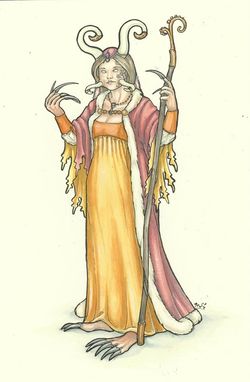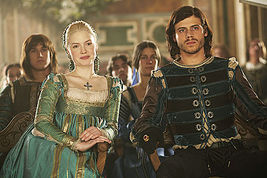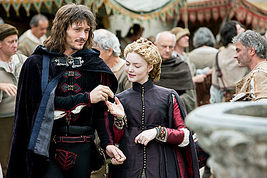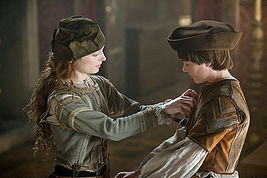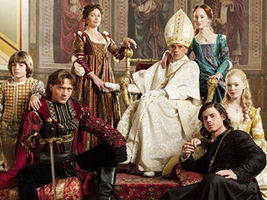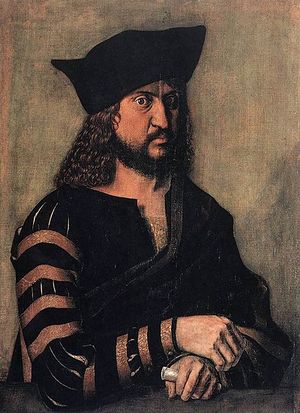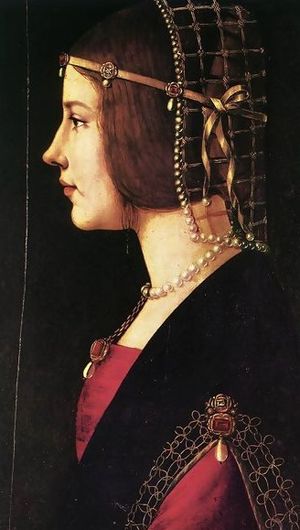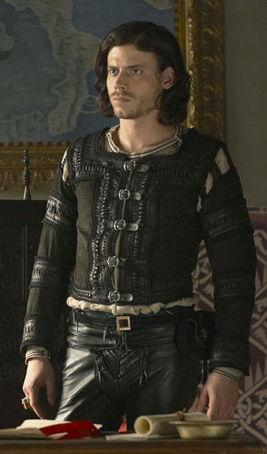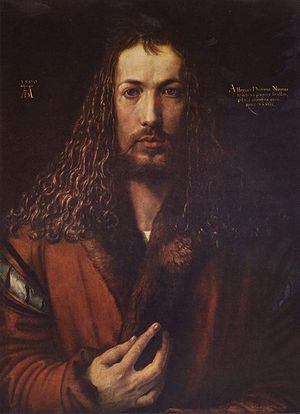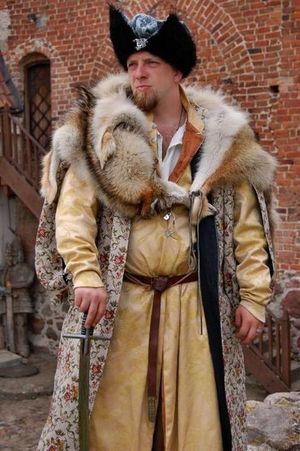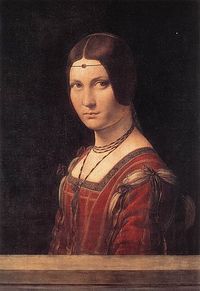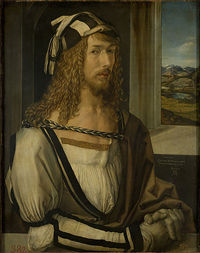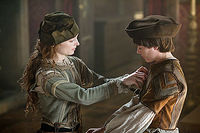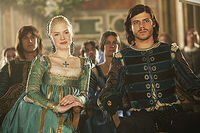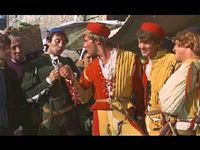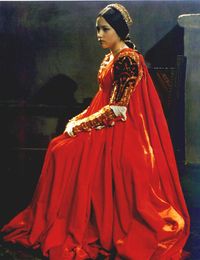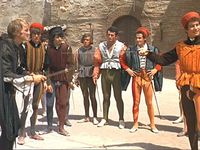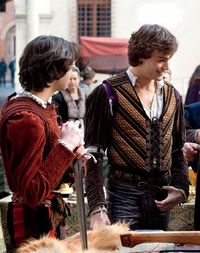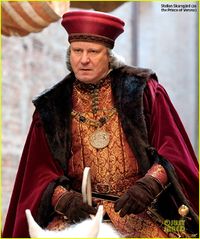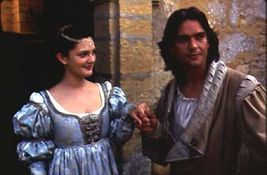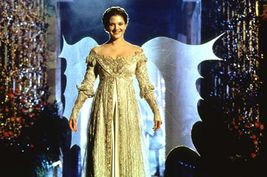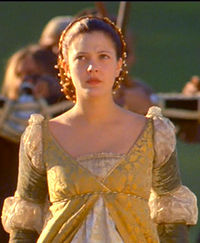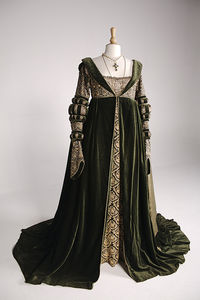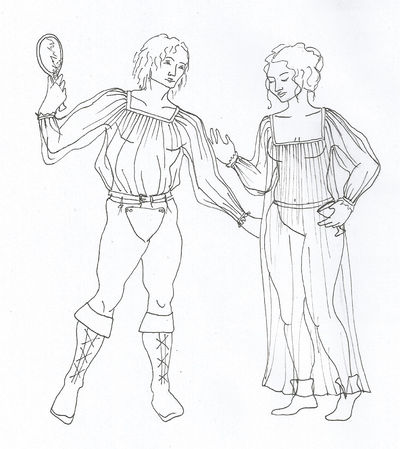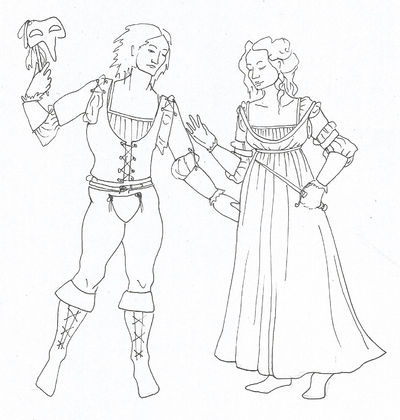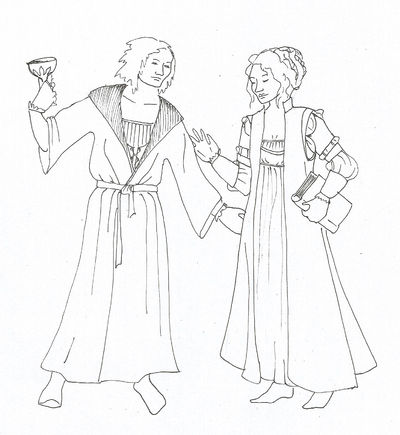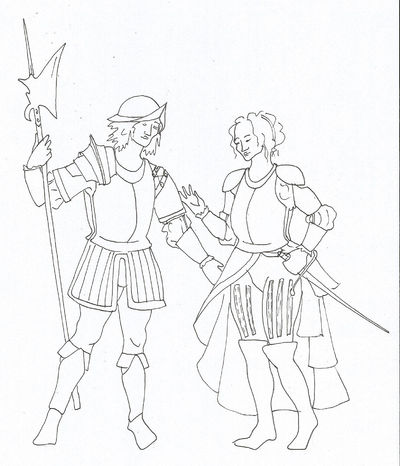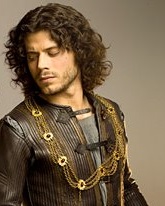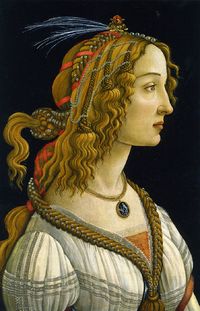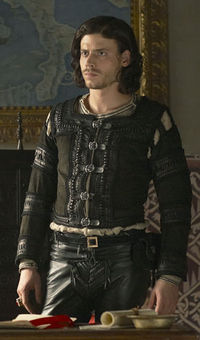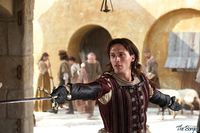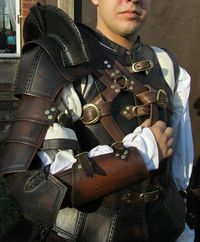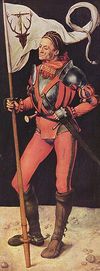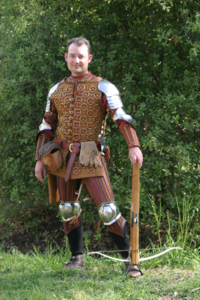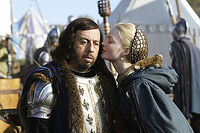The League costumes
Note: The tone and style of this page may need editing. All costume advice pages should be written in third person voice, using verbs that make clear that this page is advice, not direction.
Look and feel
"The people of the League are city-folk through and through" - No farming or utility costumes here, and no agricultural class. Your clothes are City clothes and not designed for harsh climates or a manual or physical lifestyles. They should be as far from 'utiity' as you can get them.
"In the League wealth is status" - As the most important people in the League, your costume should reveal your wealth and thereby status.
"Everything is on show" - Your costume should and will say something about you.
"Even the poorest of the League feel free to remark upon the fashions and actions of those around them" - In this nation your costume is more important than in any other. Expect to be judged in character so aim to keep upping your game and raising the standards around you.
"Masks represent anonymity, and are extensively used in magic" - Those playing mages should invest in one or several good masks and aim to adorn and personalize them
"In the south, doublets of richly patterned silks are cut to flatter. Sleeves are full, and the effect is somewhat top-heavy, with trousers fitted to a slender leg" - use bright jewel colors and lighter fabrics for the more southern cities. Hose are the historical option for trousers and easily sourced from reenactment sites. Other tight trousers will be appropriate however, and if only the legs are showing (rather than the crotch) leggings might be a good option and can be found in many colors at the moment. A beautiful doublet is easy to make - or make over an old one one - as seams can be tied rather than sewn. The best investment will be a very full, light undershirt for all genders.
"The northern cities are colder in climate, and clothing reflects that" - They are still city dwellers however and will not let inclement weather get in the way of good fashion. The northern cities will merely add more layers: a longer outer gown or a sleeveless surcoat or both. Fur is seen and heavier fabrics such as thick brocade and velvet. These may be darker in color but still sumptuous. In the north leather might be used in a very tailored way for garments. To the southern cities this might seem very drab indeed.
"Ladies who do not favour doublet-and-breeches often wear elaborate high-waisted gowns" - These are typically the Italian style with a very small bodice and low neckline necessitating a segment of (often contrasting) fabric at the front and an underdress/chemise to cover the chest. The gowns may be sleeveless, have slashed sleeves or the segmented sleeves over the very full chemise/undershirt. In the northern towns the burgundian gown might still be worn with its attached sleeves.
"They’ll never, ever shy from a fight" - Though the women of the League may like to display their wealth and taste with elaborate dresses they wont let a skirt stop them from proving their skill with a sword and outsiders should be wary of underestimating a Catazarri beauty.
Regional variations
The Bay of Catazarria
These stills are all taken from Neil Jordan’s “The Borgias" - the setting and period are perfect for the southern cities of Sarvos and Tassato. The feel here is firmly Southern Europe. Colours are brighter and fabrics typically lighter. Natural colours are considered drab and utility materials such as wool and leather are very dull indeed.
Holberg
Costume in Holberg is less colourful than the southern cities. Materials are thicker and heavier.
Temeschwar
Temeschwar is further north still and the costume reflects that with the use of fur not just as trimming but as an integral part of the costume, and strong Varushkan influence. A simple tutorial for making a fur hat appropriate to Temeschwar can be found here.
Similar nations
Although doublets and long gowns will be worn in both the League and Dawn, follow these tips to keep them distinct:
1. Embellishment: The Dawnish like rich but clean lines and un-fussy tailoring. The League should be the opposite. Go to town on ribbons, flounces, slashes and puffed sleeves. Costume should be extravagant and flamboyant.
2. Waistlines: Fashionable waistlines for dresses in the League are high. Full skirts should fall from the underbust. Dawn's low slung hip belts are thought to be a little provincial. Although high waisted houppelandes existed during this period I would advise avoiding them as they feature strongly in Dawn.
3. Slashes: A key look is to have bits of your undershirt displayed through the gaps in your gown or doublet. The easiest way to achieve this is by having sleeves that are tied on rather than attached. It would be quite easy to do this yourself if you have a doublet with integral sleeves. Replace the seams with ties and pull puffs of your undershirt through. (there will be more on constructing costumes later)
As Temeschwar was historically Varushkan, here there may be some influences from Varushka, perhaps displayed in the traditional style of hat or the cut of a coat. Fur is also common here. However, rich brocades and silks are rarely seen in Varushka.
Research
Historical influences
The League draws its influence from the latest and narrowest historical period of all the Nations. The key looks will be found in the late1400s (1460-1500) and generally more central and southern Europe (Look at http://en.wikipedia.org/wiki/1400%E2%80%931500_in_fashion).English fashions of this time are likely to be off mark. It is at the height of the medieval renaissance shortly before our Tudor period. Not everything worn in Europe during this period is 'on brief' however.
A popular european influence of this time is Landsknecht fashions. Landsknechte (German plural, singular Landsknecht) were European, predominantly German mercenary pikemen and supporting foot soldiers from the late 15th to the late 16th century, and achieved the reputation for being the universal mercenary of Early modern Europe (see http://en.wikipedia.org/wiki/Landsknecht) Please read the linked page for more advice on these costumes.
The Borgias
Most of the pictures in the look and feel section are taken from this series which really typifies the look. The costumes in the film are exceptionally high standard. Information on how to get the same look for far less cost are in following sections. Lots of detailed pictures of the costumes can be found here http://theborgias.wetpaint.com/page/COSTUMES
Zeffarelli's Romeo and Juliet 1968
The doublets and gowns in this production are beautiful. Inspiration for Bravos can be taken from the squabbling Capulets and Montagues.
Romeo and Juliet (unreleased)
Currently post production. So far the costumes seem to be suitable for this Nation.
Ever After (1998)
This film beautifully pulls historical and fantasy elements together to produce the excellent costumes. For instance, the prince's doublet in this first picture is not based on a historical pattern but nevertheless captures the feel of the League. Drew Barymore's Ball dress is lovely masquerade inspiration. Baroness Robmilla's green and gold dress would perhaps be perfect for Holberg as it uses heavier velvet and has darker colours. Its attached sleeves also suggest Holberg and the 'v' collar is similar to that of the burgundian gown.
In detail
For fabrics go all out for the richest and plushest ones. Try silks, cottons, brocade and velvets. Good imitations are available for lower cost online. The only fabrics I would suggest staying away from are shiny satin and stretch velour. Often fabrics can be picked up from charity shops. A great place to get vibrant and detailed fabrics at a reasonable price are saree shops.
Undershirts are best made of a thin and light material, highly gathered to give it the ability to be pulled through clothing in many places. A very light muslin might be a historical choice but actually a polyester, plain window 'net' can give a better effect.
Use rich embroidered or gold trims. Think about using ribbon for the ties on both men's and women's clothing.
Where possible use lacing (again consider ribbon for all genders in Catazarria) and make sure the undershirt shows though at every seam and closure.
Specifics
The basic garments by layer
The single most important item of costume for the League will be a billowing undershirt - the more volume the better. If you cant make or source a round or square necked one as here, a standard larp shirt/chemise may do - try buying it oversized. Steer clear of shirts with a turned over collar. Women may wish to wear a long underdress/chemise or a shorter shirt tucked into trousers/hose.
Tight trousers are the ideal legwear. Hose should be the joined type. If you wear a more modern trouser style try hiding the fly and any belt loops with a wider belt or sash. If the top of your trousers is hidden by other layers and the bottom by boots, thick, plain leggings are a cheap and easy option for legwear. (Patterns and tutorials to follow)
.
.
.
.
.
.
.
The bodice or doublet should be tight fitting. The neckline can be any shape but avoid high collars on this layer - Ideally have it low to show the undershirt. It should ideally sit at the natural waist, at the top of the hose/trousers or shortly below. The sleeves should tie on rather than be stitched in. If you already have, or buy, a doublet or dress with attached arms you can unpick the arm hole seam and stitch on cord or ribbon ties to instantly transform it into a League costume. If making your own costume sleeves can be elaborately slashed or segmented to show the undershirt/chemise in as many places as possible. This is easy to do as rectangles can be sewn into tubes with a gap at the elbow.
(Patterns and tutorials to follow)
.
.
.
.
.
.
The two outer garments shown could be worn by both genders. They both fall from the shoulders loosely and can be made from the same simple pattern. The overgown (Simar worn by the male figure) has loose sleeves and is typically tied closed with a sash. The surcoat worn by the woman is very simple but could have false sleeves or box pleats across the back if you are a more confident costumer. Cloaks are also suitable in most forms too.
(Patterns and tutorials to follow)
.
.
.
.
.
.
.
Armour for the League is discussed more fully in the armour section, however, for women the overgown could be open centre front and tucked back to allow free movement when fighting.
.
.
.
.
.
.
.
.
.
.
Jewellery
Rings are very important in the League, representing loyalty and allegiances, and should probably be the first item of jewellery that a player invests in.
A wealthy or influential man might wear a large heavy chain loosely around his neck.
For women the best way to adorn an outfit might be elaborate hair decoration. Otherwise gold and silver necklaces and bracelets with large stones will work in this nation. Fine chains are unlikely to be opulent enough.
Armour
Bravos are typically lightly armoured with perhaps a more substantive shoulder piece.
A starting Free Company may equip its soldiers with a quilted jack. Wealthier companies may have matching arming doublets, armour and helmets. A breastplate and helm are the basic armour but a full harness is rare. For the very wealthy their breastplate might be very ornately detailed. Scale and chain are unlikely to be seen here.
Resources
How To's
Italian Renaissance Gown construction http://homepages.wmich.edu/~rowen/renbk/rendressbook.html#anchor1163546
How to make your own hose instructions http://historiclife.com/Essays/howto_hose.html
Patterns
15thC doublet and hose. Ideally need to be unattached at shoulder http://www.paulmeekins.co.uk/patterns/patternpages/RH003.html
Early 16thC pattern but still ok as long as you keep the trousers tight, boys! http://www.paulmeekins.co.uk/patterns/patternpages/RH502.html
Pre-Tudor doublet and hose http://www.paulmeekins.co.uk/patterns/patternpages/RH610.html
Very simple women's overgown. You probably won't need to buy the pattern if you have any sewing experience. http://www.paulmeekins.co.uk/patterns/patternpages/RH510.html
The baggy sleeves on the gown are not necessarily perfect (try getting the segmented look by adding tight bands of fabric around the apper and lower arm to pull them in) but the bodice shape and skirts are great http://www.paulmeekins.co.uk/patterns/patternpages/RH511.html
Mens slashed sleeved doublet and hose. This simplicity Pattern is a little late in style but would still look right for the League. To improve it you could crop the doublet short so there was no flared portion over the hips. http://www.simplicity.com/p-7206-burda-style-middle-age-guard.aspx
Womens Gown.A little late in period but a lovely design. It cold be improved by having the sleves constructed seperately and tied on and by raising the waistline a little. http://www.habithat.co.uk/product_info.php/products_id/12230
Once again a little late in style but has the right feel. Could be worn with a sleeveless underdress and with a chemise for a better look. The short version would be great for fighting style with trousers and undershirt/chemise. http://www.simplicity.com/p-7937-misses-costume.aspx
Chemise pattern http://www.simplicity.com/p-1722-misses-costumes.aspx#t-0
Reading
Have a look at the art of Albrecht Durer (http://en.wikipedia.org/wiki/Albrecht_D%C3%BCrer), Leonado Da Vinci (http://en.wikipedia.org/wiki/List_of_works_by_Leonardo_da_Vinci) and Sandro Botticelli (http://en.wikipedia.org/wiki/Botticelli)
Useful, brief historical info, particularly the southern European Styles: http://en.wikipedia.org/wiki/1400%E2%80%931500_in_fashion
This is quite interesting. Explains the fashion for showing your chemise/shirt: http://www.homemade-costumes-from-history.com/showing-your-chemise.html
http://www.florentine-persona.com/femflorence.html women's clothing in 15th c Florence
http://realmofvenus.renaissanceitaly.net/
http://jessamynscloset.com/ image gallery includes 15thC
Detailed pictures of the Borgias costumes http://theborgias.wetpaint.com/page/COSTUMES
Shops
- By the Sword inc Armour and clothing (including reproductions of costumes from the Borgias TV series)
- http://www.theknightshop.co.uk Several different chemise shirt underdress styles
- Angrave Designs Custom costume production and embroidery
- Armstreet Chemises and undershirts. Not really any suitable doublets. One dress (renaissance nobility velvet dress) that although a little late in style would look in keeping
- The Midgard Seamstress Custom made UK LARP and Re-enactment costumes
- Totally Leathered provides custom tooled leatherwork & bespoke armour.
- Idiom Productions Costume and Props Workshop creates custom hand-tooled leather armour, clothing and LRP weapons
- Custom Costume Company Bespoke designs for re-enactors and roleplayers
- Evenlode Studios - High quality leather armour, costume and props handmade
Things to avoid
The 16th Century This may be tricky. Unlike the other nations with strong historical influences, here there is a definite cut off. Although there will be some overlap into the 16thC it is important to keep the feel as late 15thC as possible. Here are some tips:
1) Avoid breeches if possible. Although they are "not wrong" they become the mainstay of legwear in the Tudor period. Several of the images in the guide have breeches in them but that is due to a lack of perfect images. If you wear breeches keep them tight to the leg. Do not wear stiff padded ones.
2) Avoid padded clothes of any kind. In general these are too late period.
3) Dont use straight or conical corsets or bodices - these will give a stiff silhouette and the wrong shape. In general, overbust corsets of any kind are wrong for the look. Underbust corsets could be used under clothes for a little extra control.
4) Keep waistlines high. For doublets should stop at the natural waist. For dresses the waistline is underbust.
5) The style is soft and almost a little lazy looking. Everything is loosely tied and shirts/underdresses should seem to fall out of the connecting parts. Overgowns and surcoats fall softly from the shoulders. Shirts and dresses are very full with metres of fabric yet men's doublets and women's bodices loook like there isnt quite enough fabric.
Dandies The League is a Nation of self-made men and women. There are no gilded spoons and no lazy person will achieve wealth. Although appearance is of critical importance it is not a substitute for ability and action. The typical makeup and dress of the European Dandy comes from the 18th century so is far too late in style.
Wench costumes
